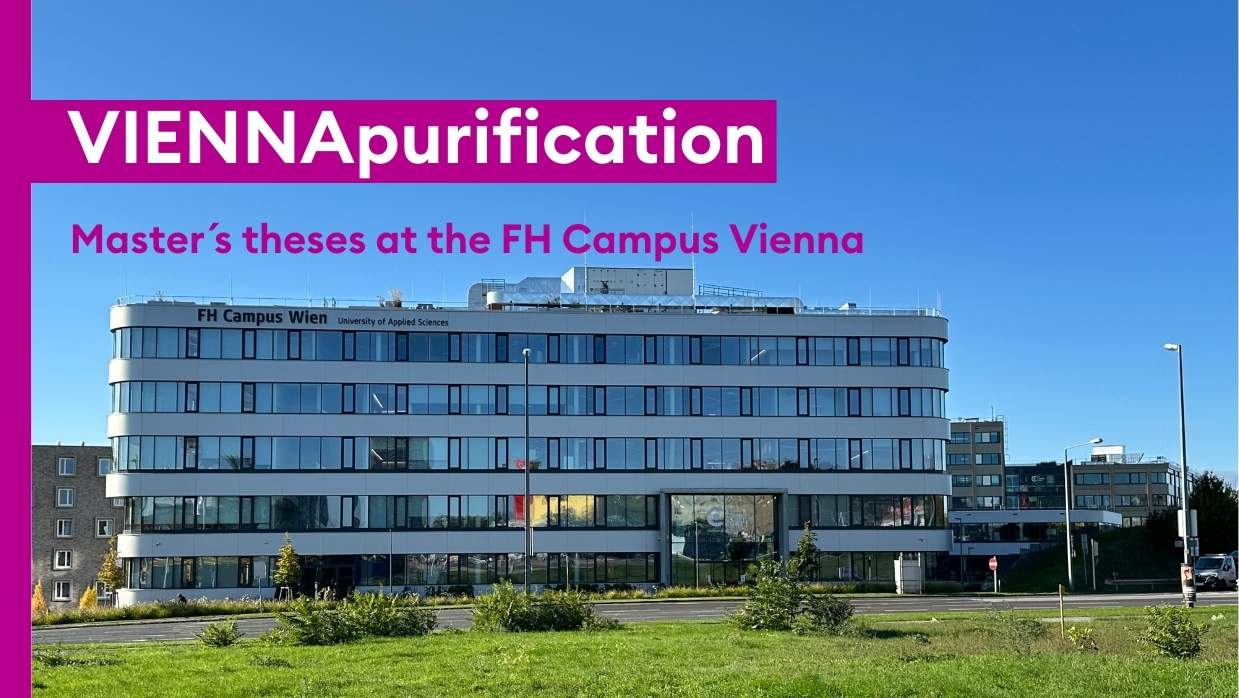Supervising Master's theses - why?
In a world that is increasingly characterised by efficiency, time pressure and the continuous search for innovation, it may seem unusual at first glance for the managing director of vipur to invest time in supervising master’s theses.
So why am I doing this? What motivates me to do it?
I would like to answer these questions today, because supervising master’s theses at a university of applied sciences can be a rewarding but also challenging task.
Promoting young talent - an investment in the future
For many years, I have been supporting the FH-Campus Vienna Bioengineering Department and the University of Natural Resources and Life Sciences in Vienna (BOKU) with my filtration expertise and filtration products and have been available to advise professors and students with my specialist knowledge. Some time ago, I was asked by the University of Applied Sciences whether I would like to pass on my knowledge and experience from the world of filtration to students as part of the Bioengineering Master's programme. And so, it came about that I have been teaching at the FH Campus Vienna for two years now and I am also happy to supervise master’s theses.
One of the most important reasons why I do this is my general conviction that supporting students and the associated transfer of knowledge is essential for the future of our society. Another important factor is that, as the managing director of a company, I know how important it is,
- to promote young talent,
- to give them the opportunity to develop their skills and ideas in a practical environment,
- to ensure continuous progress in the filtration industry.
Therefore, we at vipur are highly committed to maintaining and expanding the pharmaceutical and biotechnology centre of Vienna and Austria and are very happy to work together with technical colleges and universities.
Because this results in a:
Knowledge transfer between theory and practice
In contrast to purely academic universities, universities of applied sciences place a stronger focus on practice-orientated training. Master's theses at “FH´s” are therefore often closely linked to real-life professional issues. Many students therefore decide to write their thesis in collaboration with companies or organisations - and that's where we come in.
As Managing Director of vipur, I am constantly involved in what is known as “practice”. The challenges and requirements of day-to-day business in the pharmaceutical and biotechnology sectors are demanding and varied, and I am still learning from all the new developments. It is precisely this experience from business and research that provides valuable insights and opens new perspectives on current challenges.
By supervising master’s theses, I enable students to combine their theoretical concepts with the real requirements of pharmaceutical and biotechnology. I am happy to give you specific tips on topics that are currently or will be of great interest in the future. At the same time, I am available to listen and advise them and provide insights into how they can organise their work more efficiently.
Because I know only too well how important a sympathetic ear and tips can be:
Being a role model as a father
As a father of two sons myself, I see it as particularly important to give future generations tools for their professional careers and, above all, the confidence that their ideas and approaches are important. This aspect not only promotes a healthy work culture but also contributes to everyone's personal development.
It is important to me to convey to students that success is not only determined by academic achievements or career stages, but also by the way in which graduates perceive and shape their impact on society and the environment.
Conclusion: A gift to myself and the next generation
To summarise, supervising master’s theses is doubly enriching for me. It is not only an opportunity to impart and promote knowledge, but also an opportunity to grow myself and exchange ideas with the next generation. As a managing director, I benefit from the innovative ideas of the students, and as a father, I pass on to my own children and society a piece of what is important to me:
Taking responsibility, living values, realising visions and the tireless will to keep learning, and growing.
See you next time.
Have a nice day,
Wolfgang Steindl-Kratochvil and the vipur team
